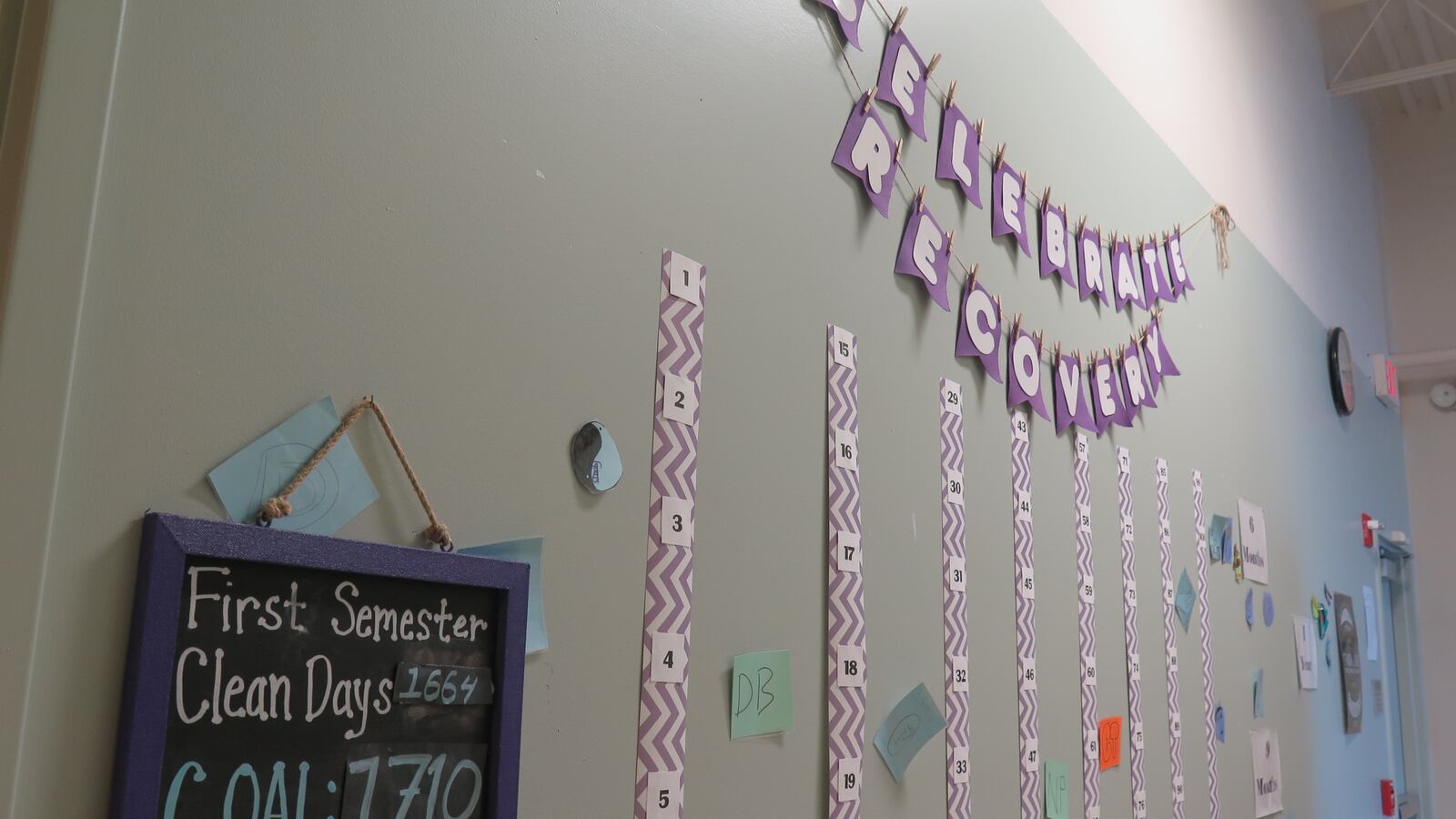An Indianapolis charter school for teens recovering from drug and alcohol abuse will host U.S. Secretary of Education Betsy DeVos Friday.
As part of a six-state tour that aims to highlight creative approaches to education, DeVos will visit Hope Academy, a charter school based at Fairbanks Addiction Treatment Center in Lawrence Township that serves students in recovery.
“It is our goal with this tour to highlight what’s working,” DeVos said in a statement about the tour. “There are so many new and exciting ways state-based education leaders and advocates are truly rethinking education.”
Hope, which opened in 2006 and had about 25 students last year, offers traditional classes such as English and science. But it is tailored to students in recovery. Last year, student Avalon Dugan told Chalkbeat the close-knit community and regular drug testing at the school were essential to helping her stay sober.
“Teachers at larger schools don’t really see one kid out of like 300 walking through a hallway,” Dugan said. “There’s a lot of people in recovery that work here, so they … pick up on things because they were there are one point.”
When Chalkbeat visited the school last year, Hope staff said the challenges they grapple with have changed since the school opened its doors:
Hope Academy is among about 30 recovery high schools around the country that offer a unique approach to helping students stay sober and graduate from high school but, as the programs mature, they’re finding that many students are enrolling earlier in their recovery processes. That has put pressure on the schools to offer more support to students. In Indiana, Hope officials say the problem is insurance companies are offering less coverage for rehab for kids addicted to opioids as opposed to alcohol, since detoxing from opioids isn’t considered life-threatening. When Hope opened in 2006, it largely served students who had abused alcohol or marijuana — and typically had been in treatment more than 30 days before enrolling in Hope. But as more kids use opioids like heroin and oxycodone, even students with access to healthcare are less likely to get the kind of long-term treatment they used to, said Rachelle Gardner, the school’s chief operating officer. “We may have students that come to us with a week or so of inpatient treatment,” Gardner said. “They’re just starting to get clean.”
Read the full story: High schools for addicts face new challenges as students receive less treatment

